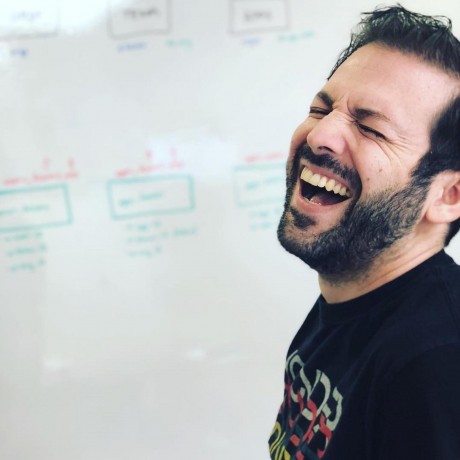Time Wasting is Not a Management Style
Published
on Feb 1, 2013
Have you ever developed multiple applications at once and thought that the day was literally getting away from you? You peeked your head up after a long coding session to find that it was 2 o’clock in the afternoon and you had nothing to show for you day, but a series of bugs and tiny accomplishments. You say to yourself, “Well, my plugin looks like a plugin...I think?” That has been my day for the last week, which was (and still is) a giant leap towards being a more well-rounded coder with nothing to show for it except a small migraine creeping up from a corner of my brain.
Though in my vain attempt to grow my skills or talents I wonder if perhaps I am not taking the time to manage myself and work to be better. In an article by [Brett Harned](http://v2.happycog.com/about/harned), a Project Management Director at Happy Cog talks about “[Defeating Busy](http://cognition.happycog.com/article/defeating-busy)”. His entire article is about taking out the busy concept and being effective at your work rather than simply being “busy”. He outlines several great tips to manage your time and make the most of your day, week, and probably month. This got be me thinking about some of my own management techniques that keep me from screaming and pulling all my hair out.
## Tips to Manage the Chaos
### Keep a list of all your tasks.
Some of the best tools that I have at my disposal are the ones that I use to manage what I am supposed to do (as long as I use them, right?). A few tools that I have used or still use are Trello, Wunderlist, and Asana. Each one serves a different purpose, but each one does it well. Trello, for example, makes keeping track of task lists a breeze and allows you to break down by project, as well as, create your own custom lists for new, working on, or completed work.
### Focus, focus, focus
Learn to not be in a multitude of things at once and try to stick to one task at a time. Consider this if you have a list of 10 tasks to complete one project then start at the top and work down. However, if there is a priority to your tasks or they need to be checked off in a certain order then do that. Try not to do them all halfway, but make sure they are done and move on from there. Throughout my day there will be at least 10-15 people who will walk into my office asking for help. Most times I have to say, “no”, (not to be rude) to what they need of me because I simply can’t give them the attention they deserve. Distractions will happen, but it depends on how you manage your attention that will determine if you get lost throughout the day.
### Set up productive time
Even when not dealing with work projects it can be hard to make time to do anything. At home trying to write on a daily basis is nearly impossible unless I set aside time in my day, deliberately, to write at least for an hour. When I'm coding at work or a local coffeehouse I try block out at least 2-3 hours, if I can manage, to spend checking off tasks on my list before email, meetings, co-workers, or other distractions enter my space. Perhaps your a morning person and you can only seem to get things done between 7am and 8am every day, because no one is in the office. Great! Spend that time being productive, which will give you ample time to handle the other things that will start to distract you later. Block the time and work away.
## In The Beginning
At the beginning of each day start writing your tasks down to know what you will or try to accomplish that day, plus scratching things off your list as completed feels good sometimes to keep your morale up. A co-worker used to spend the last 10 mins of his day, while his mind was still fresh, writing down his tasks for next day, because he had a harder time trying to remember what he was supposed to do while drinking his coffee in the morning. Whatever your way of keeping track is, all I would say is use that, but don't let your task list fall off your radar. Your list will be the most important piece to every project your work on.
And don't think that this only applies to people in the corporate world, because anybody that has a goal to tackle has a list of smaller steps to complete it and the only difference is that they haven't written it down. So as a round of encouragement write down those tasks for your day and get to checking them off. Your sanity will thank you.
